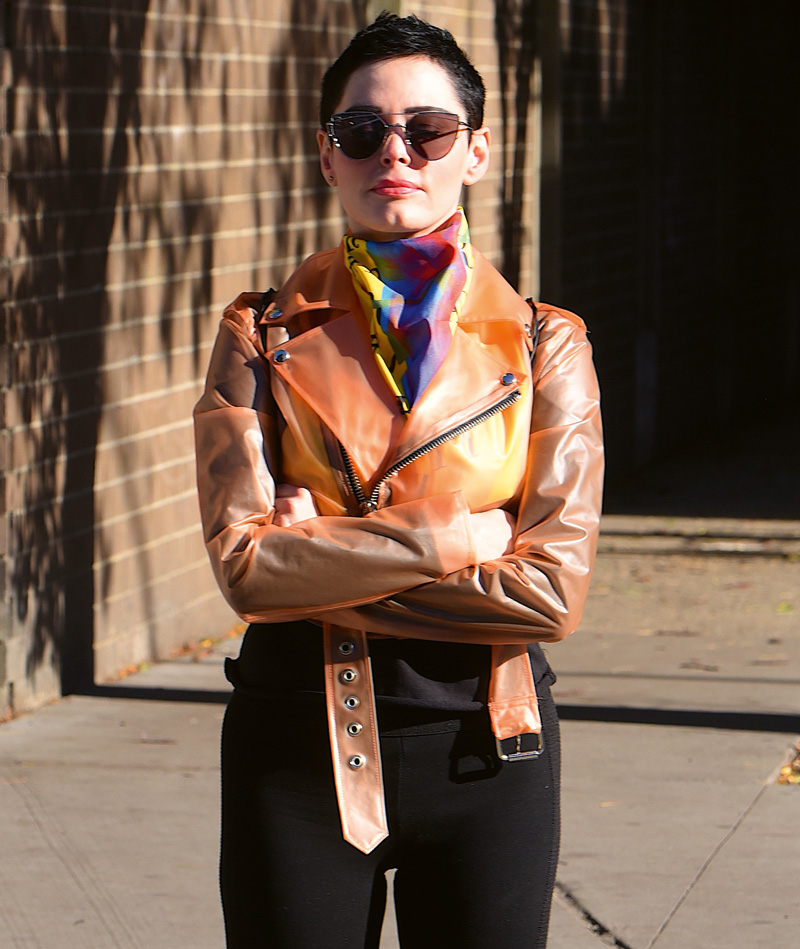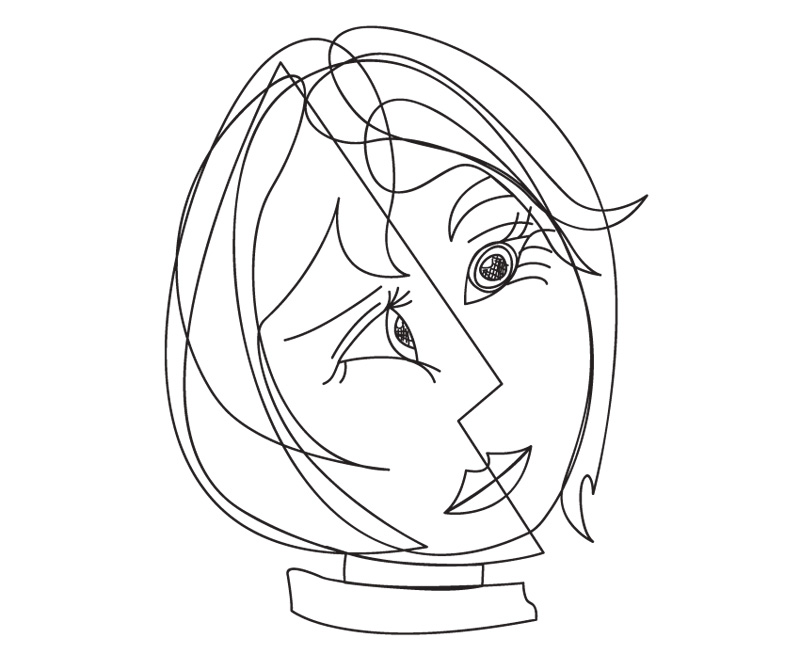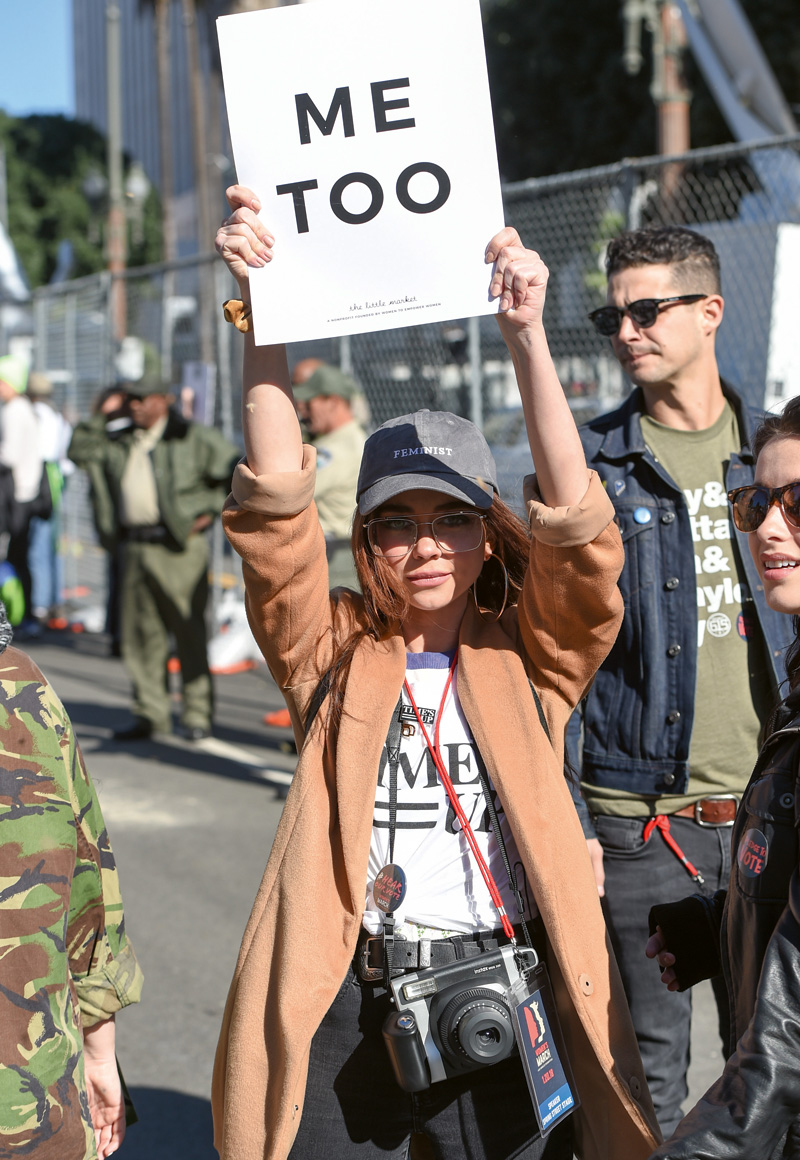Just like cancer is a public health problem, so is violence against women.
Let me establish one thing first. I am not a survivor of violence. But I don’t need to be, to help end the problem.
Responding to violence should not be an individual endeavour on the part of the survivor, it should be part of our collective conscious to help – wherever we stand. I am a crisis counsellor for survivors of domestic violence and while I am formally trained, my credentials are not superior to the natural, emotional capacity we all have to help prevent violence against women.
Read:
We love this sweet family photo from HM Queen Rania
Saudi Arabia is ready for women to hit the road, officials say
You don’t need me to reiterate the Hollywood accusations that have raged across the headlines. #MeToo and #TimesUp have firmly put the problem in its rightful place and created a new wave for women empowerment across industries at every level. In a post-Weinstein world, accountability is more important than ever. Perpetrators can’t get away with their actions anymore and survivors can stick their head above the parapet and speak up without fear of a takedown.

As for the rest of us, we can’t sit on the side lines just because it doesn’t readily affect us. Now that we have wind in our sails, it’s time to step up at a grassroots level to effect change by tweaking the way we experience the world we have constructed.
Firstly, we need to rewire our intrinsic perception of violence against women. Here’s a fact to irk you: one in three women will experience domestic violence in their lifetime, according to the World Health Organization (WHO). That, dear readers, is by definition a public health problem. Just like cancer is a public health problem, so is violence against women. We need to treat it by way of public perception. We are the cure.
But how did we even get to where we are today? Look around you. How much of what we consume sexualises and objectifies women, signifying their ownership by men? You probably won’t notice it until you really think about it. Why? Because it’s always been there. It’s ‘normal’. Gross representation of women is a mainstay in advertising campaigns – women are portrayed as a sum of their parts as opposed to what they are actually purveying – which usually falls wildly off-target.
Case and point: Paris Hilton in the Burger King commercial that showed more of her splayed legs over a car bonnet and a sultry index finger in her mouth like a lolli-pop than the spicy BBQ burger, which had three seconds of airtime in the closing credits.
And I hate to say it, because I am an active listener, but viral misogynistic anthems (as much as they are the best to dance to) horrifically perpetuate the cycle of violence. Listen with moth-like attentiveness to the lyrics of your ‘tuuuuuune’ – there is nothing benign about the fact that “I know you want it”.
As educated as you are about the line between creative expression and everyday speak, these words are not just words, they flood our minds and become actions. Why does a woman have to perform for a man in a demeaning way to prove her worth?

Why can’t she just ‘be’ – like a man can? Watch the Blurred Lines parody – the tables turn, the men parade half-naked around farm animals, women own the space and it’s fist-pumpingly brilliant. Let’s stop making songs that are a disservice to women a runaway success.
Every day we have to make small, conscious choices to empower each other wherever we are, be it at home, in the workplace, among our friends and also, not our friends.
When you hear people make subtle sexist comments, call them out on it. Mary-Justine Todd, CEO and founder of Women’s Crisis Care International (WCCI), based in Bahrain – where the first crisis intervention service was implemented in the region in 2015 says: “People always say to me, ‘oh my gosh, it must be so impossible working with 70 women [that’s the number of women who make up WCCI’s advocates, myself included] and I say, no, actually working with 70 women is difficult because working with 70 human beings can be difficult but women are my best friends.”
When men mistreat you or your friends, don’t accept it. I hear you cry, ‘but I don’t want to get involved’ – that’s fine, but then you choose to be a witness to wrong-doing and then you are officially part of the problem.
“It’s really easy to overlook wrong-doing accidentally. If you see a dishevelled pregnant woman on the street having problems, you’re probably going to dismiss it as she’s trashy or something, but if you see the same woman who looks kind of like you, you might help. Maintain intersectionality, stand up for all women,” says Mary-Justine.

We all come from different walks of life. Look at the UAE, a staggering United Nations worth of people. But with that, comes differences and our unconscious biases against certain people that have been forged by the society around us. Drop your biases – but know that they exist and be OK with them – we were all brought up to think a certain way.
When we see a particular person, based on our societal associations, we subscribe them to a stereotype, for example fat – bad, thin – good, and it’s impossible to reverse life-long conditioning, at least initially.
But you can rise above it. Let the thoughts you would never voice scream out in your head, but keep them there. Your capacity to help shouldn’t be affected by entrenched views. We may not necessarily understand each other but empathy goes beyond divisive attitudes. Sometimes all it takes is holding a person’s hand, giving them a glass of water and a warm, knowing smile, even when we know nothing at all.
Never underestimate the power of asking, “hey, is someone hurting you? You can talk to me”. All you have to do is ask. Research shows that just by asking, the likelihood of violence being reported rises by up to 50 per cent. You may well be the only person that does.
Read:
Meet the Lebanese illustrator who comes Gucci-approved
Our picks: 10 Dubai iftars to try this Ramadan
And if she does open up, keep judgement at bay, because I can guarantee you will frown at the validity of her story without realising it. Believe her. The default response is to question her motives pre-assault: why was she dressed that way? What business did she have at the club at 04:00 in the morning? Well, it couldn’t have been that bad, she didn’t report it immediately. ‘Why’ is code for it’s her fault. Whatever the situation, it was not her fault.
If there is one important caveat to impart, it’s to know that not everyone responds to violence the same way. We are lead to believe that survivors react in a standardised way as per the images purported by the media. You know, where she’s wearing a blood-spattered shirt, ripped jeans, scuffed shoes and is a hysterical heap of tears. Some 85 per cent of domestic violence cases are perpetrated by intimate partners – husband, partners, ex-partners, according to the WHO, not the bush dwelling stranger who jumps out at an opportune moment, only 16 per cent of the time.
And when survivors don’t live up to the ‘perfect victim’ stereotype, they fall through the cracks of the justice system and the perpetrators walk free, only to assault again and again.
No one chooses how they are going to react to violence. You leave your body and your body does something outside of your physical and emotional grasp that you have no control over. A woman may appear aloof, she may be mute, she may be defensive and angry, she may even dismiss it because she doesn’t want to make a big deal of it. But always believe her. Even if the perpetrator is the most charming man who always has tact and is super hardworking and respected by his peers – believe her.
“The only thing necessary for the triumph of evil is for good people to do nothing,” – crucial words spoken by philosopher Edmund Burke. To slide this into advocating women’s safety, if you see something, say something.
Mountains won’t be moved tomorrow, and neither will the facts. But when we use our voices, we empower others to use theirs too.
Images: Getty












